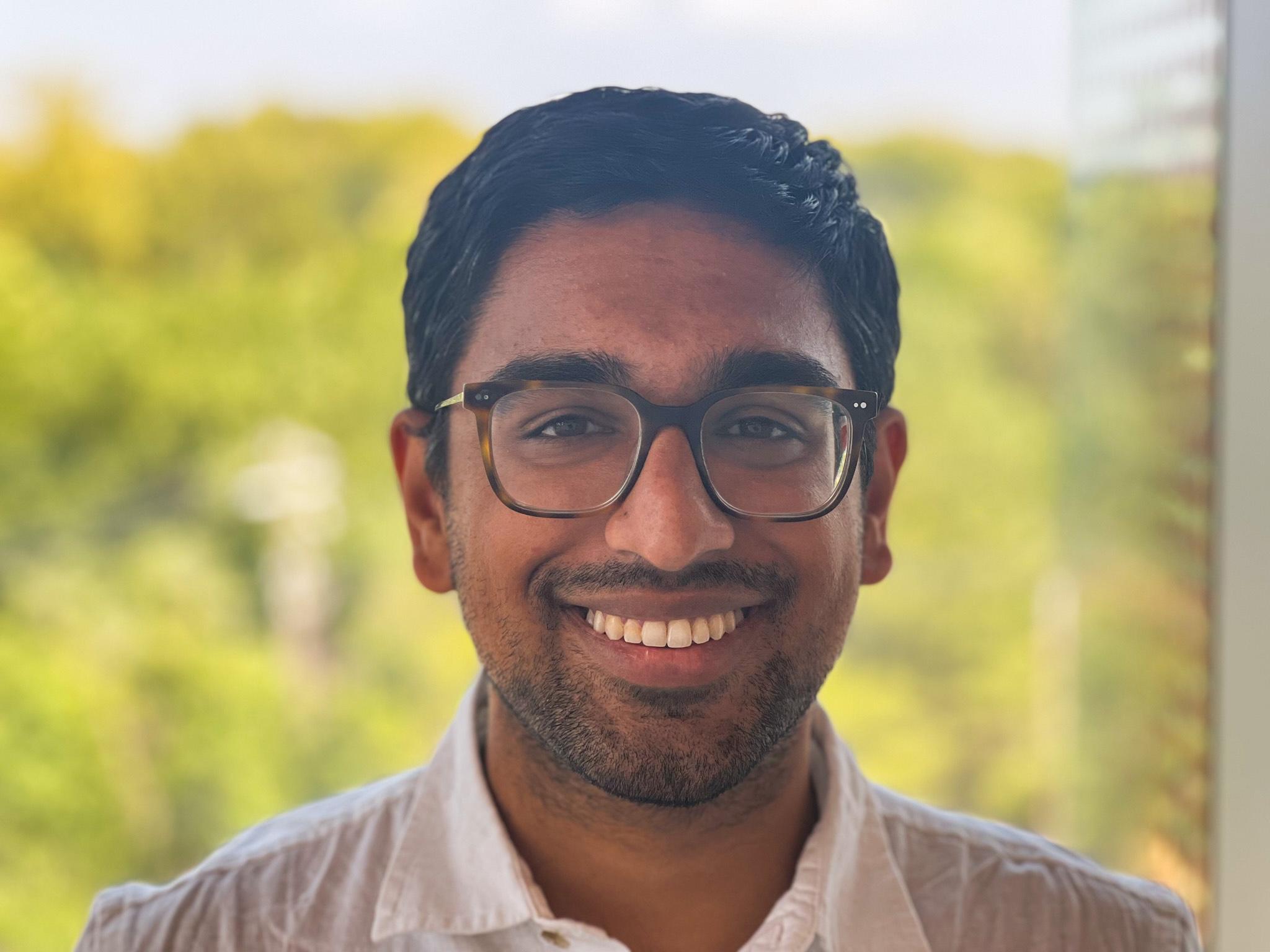
In the race for constant growth, many large language models (LLMs) focus on producing newer and better outputs.
Sathvik Nair, a third-year linguistics doctoral student working in the Computational Linguistics and Information Processing (CLIP) Lab at the University of Maryland is taking different approach, examining how this technology operates and what it reveals about human cognition.
Nair is deeply fascinated by the human mind. His research involves understanding and explaining human language processing and usage through advances in LLMs.
By integrating advances in natural language processing with data and insights from psycholinguistics, Nair aims to use advanced technology that mainstream LLMs—like ChatGPT—are modeled after, to gain an improved understanding of the human mind.
After working as a software engineer for Amazon, Nair’s passion for linguistics and psychology led him to UMD, where he values how language is viewed as a science.
“I was drawn to how the linguistics program here really looks seriously at how language is processed in the brain,” Nair says. “My bachelor’s degrees were in computer science and cognitive science, and linguistics was the missing piece.”
He is co-advised by Philip Resnik, a professor of linguistics with an appointment in the University of Maryland Institute for Advanced Computer Studies, (UMIACS) and Colin Phillips, a professor of linguistics and the founding director of the Language Science Center.
Resnik notes that Nair’s background and computational skills brought a fresh perspective to his research group.
“What’s really striking, is his combination of technical ability, curiosity and openness to looking at the study of language in a way that he had not been deeply engaged with previously,” says Resnik, who is also a member of the CLIP lab.
Not only has Nair’s research resulted in recognition from both professors, conferences and journals, but also by the National Science Foundation (NSF) in the form of its competitive Graduate Research Fellowship.
Nair applied for the fellowship to support him as a graduate student before coming to UMD in 2022, and while his application received consideration, he was disappointed at not being selected.
This year, Nair was one of 22 UMD students or recent alumni selected for the competitive fellowship. He will receive an annual stipend of $37,000, a $16,000 education allowance for tuition and fees, as well as access to opportunities for professional development.
When Nair learned he had received the fellowship, he says he was both surprised and elated.
“In grad school many of your goals and ideas might change, but this was something I really wanted," Nair says. “I was really excited to finally get this grant I didn’t think that I would ever get.”
—Story by Shaun Chornobroff, UMIACS communications group